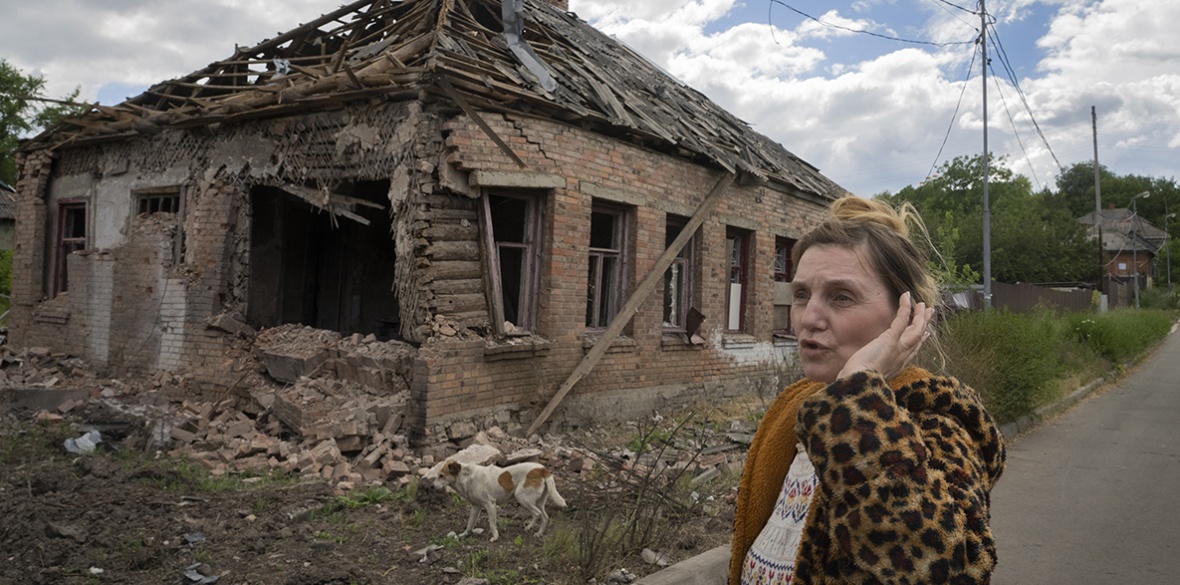This is the last article you can read this month
You can read more article this month
You can read more articles this month
Sorry your limit is up for this month
Reset on:
Please help support the Morning Star by subscribing here
GOVERNMENTS across Europe have descended into turmoil because of the war in Ukraine, contradicting claims of unity made by European Union chiefs on Thursday.
Chaotic scenes saw Italian lawmakers — including those frm the far-right Northern League — staged a protest on the floor of the country’s parliament while it was in session on Thursday evening in opposition to increased military spending.
Some 70 per cent of the Italian population reportedly oppose the government sending more arms to Ukraine, with the economy sliding into recession and inflation running at the highest level for decades.
National strike action has seen Italian workers united under the slogan: “Lower your guns and raise your wages.”
Italian Prime Minister Mario Draghi’s coalition government was plunged into crisis earlier this week after Italian foreign minister Luigi Di Maio announced he was leaving the Five Star Movement.
He resigned from the party he used to lead to start a breakaway group over its “ambiguity” on support for war in Ukraine.
Mr Di Maio supports Prime Minister Mario Draghi’s pro-European stance and an increase in arms to support Kiev in its war against Russia.
As many as 60 former Five Star lawmakers have already signed up to his new group Together for the Future, according to media reports.
In Bulgaria, prime minister Kiril Perkov was ousted following internal disputes over the national budget with opposition lawmakers angered over his approval for North Macedonia’s EU membership aspirations
The pro-EU, pro-Ukraine politician said that he feared a “drastic shift” in support of Russia after his coalition government collapsed following the confidence vote.
He is expected to sign his resignation on Monday and said there will be fresh elections.
Speaking yesterday, he urged his North Macedonian counterpart Dimitar Kovacevski to accept a French-led compromise that would open the door for Skopje to start formal membership talks with the EU.
He acknowledged that this would be difficult and could also lead to the collapse of the North Macedonian administration.
“And I know that the risk of toppling the government is — it’s a big risk,” Mr Perkov said.
The deepening crisis developing in a number of EU countries contradicts statements made by Ursula von der Leyen on Thursday after Ukraine was granted candidate membership status, along with Moldova.
Georgia’s application remains under consideration pending reforms, although EU leaders recognised its “European perspective.”
“This decision strengthens us all,” the EU chief said. “It strengthens Ukraine, Moldova and Georgia in the face of Russian imperialism. And it strengthens the EU.
“Because it shows once again to the world that we are united and string in the face of external threats.”
But Ukrainian opposition leader Anatoly Shariy, whose Shariy Party was banned earlier this week, blasted the EU for allowing Ukraine membership status while placing conditions on others.
“The West demands from Georgia that there should be no concentration of power in the country, that democratic reforms be carried out, that there should be no problems with free media, that there should be no attacks on opponents, that deoligarchisation should take place.
“Has Ukraine fulfilled all this?” he asked.












